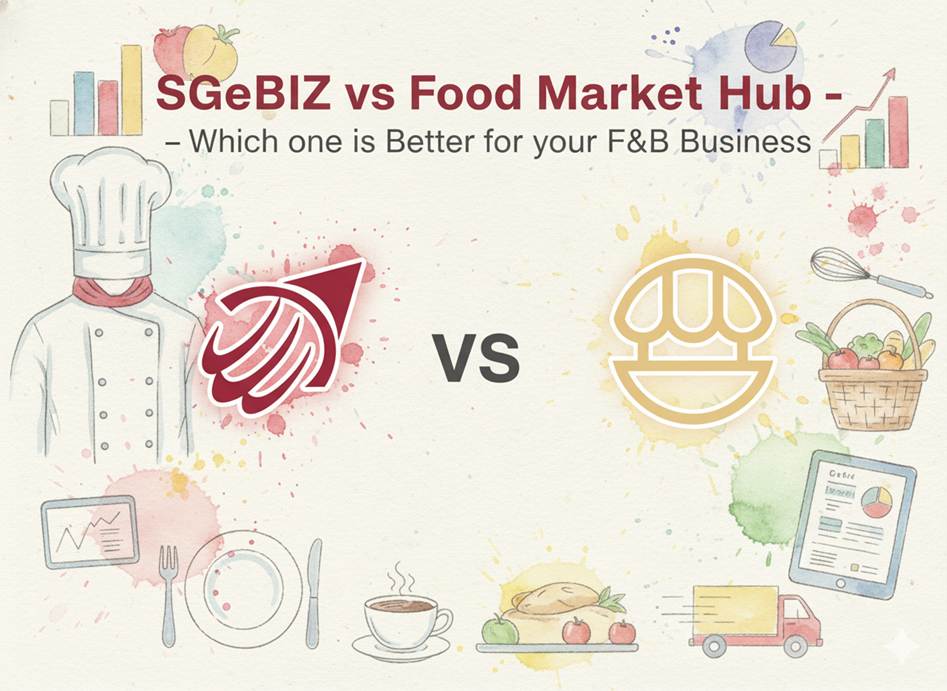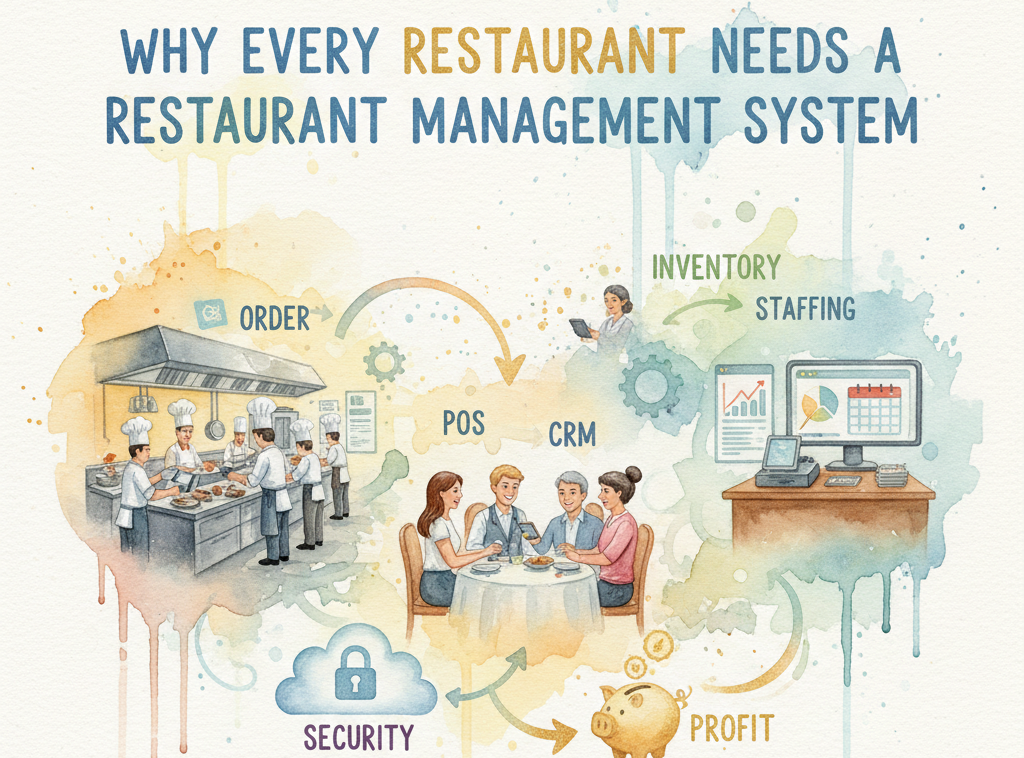Why do you Need Restaurant Accounting Software?

From ensuring customer satisfaction to managing your team, it’s easy to feel overwhelmed. Amid this chaos, one area you cannot afford to neglect is your finances. That’s where restaurant accounting software comes in.
This software is designed specifically to handle the financial complexities of restaurants. It goes beyond basic tools, helping you track expenses, manage inventory, calculate labor costs, and even prepare for taxes. It simplifies processes, giving you accurate financial insights and saving time.
I’ve seen restaurant owners struggle without it—spending sleepless nights reconciling numbers or dealing with tax penalties. Let’s dive into why this software is a game-changer for your restaurant.

Challenges of Basic Restaurant Accounting Without Software
If you’re still relying on spreadsheets or manual bookkeeping, you’re making your work harder than it needs to be. Here’s what you’re likely facing:
Manual Errors That Cost You Money
When handling finances manually, mistakes are inevitable. Misplacing a receipt or entering the wrong number can throw off your entire budget. According to a report by Gartner, businesses lose 1%-5% of their revenue annually due to manual data entry errors. For restaurants, where profit margins are already slim, these mistakes can significantly impact your bottom line.
Wasting Precious Time on Bookkeeping
Without accounting software, you’ll spend hours tracking expenses, recording sales, and calculating wages. I’ve known restaurant owners who spend their weekends drowning in paperwork instead of focusing on their operations or enjoying a break. This inefficiency steals valuable time that could be better used elsewhere.
Struggling with Inventory Control
Restaurants deal with perishable goods, making inventory tracking critical. Without proper systems in place, it’s hard to keep tabs on your stock. Overordering leads to waste, while underordering can upset customers. Studies by the National Restaurant Association show inventory theft and wastage contribute to up to 4% of revenue loss for restaurants.
Lack of Financial Insights
Manually tracking finances means you rarely have real-time data. Understanding which menu items are profitable, where your money is going, or whether your labor costs are too high becomes a guessing game. These blind spots make it harder to make informed decisions.
Tax Compliance Challenges
Restaurant tax filing is complex. You deal with multiple streams of revenue, tips, and deductions. Missing a tax deadline or making errors can result in fines. I’ve met restaurant owners who faced penalties simply because they didn’t have a system to track their taxes properly.
Why Restaurant Accounting Software Is Essential
Using restaurant accounting software transforms how you manage your finances. It tackles these challenges head-on and helps you run your business smoothly.
Automation Saves Time and Reduces Errors
With accounting software, you can automate repetitive tasks like invoicing, payroll, and tax calculations. For instance, instead of manually calculating labor costs, the software tracks hours and processes payroll accurately. This automation eliminates manual errors and saves time.
Real-Time Inventory Management
Good accounting software integrates with your POS system to track inventory in real-time. You’ll know when supplies are running low or when certain items are overstocked. For example, if your bestselling dish is running low on ingredients, the system alerts you before it becomes a problem.

Insightful Financial Reporting
Restaurant accounting software provides detailed reports on your income, expenses, and overall performance. You’ll see which menu items bring in the most profit, how much you’re spending on labor, and whether your food costs are within the ideal range. With these insights, you can make smarter financial decisions.
Stress-Free Tax Compliance
The software simplifies tax calculations by automatically applying the latest tax rates and generating necessary reports. For restaurants in Malaysia, this includes compliance with GST or SST. With everything handled automatically, you’ll never miss a deadline or worry about penalties.
Scalability for Growing Restaurants
As your restaurant grows, so do your financial needs. Basic restaurant accounting methods can’t handle this complexity. Accounting software is scalable, meaning it grows with you. Whether you’re expanding to multiple locations or adding new services like catering, the software adapts to your needs.
Finding the Best Accounting Software for Restaurants
Choosing the best accounting software for restaurants depends on your specific needs. Here are some features to look for:
- Integration with POS Systems: Automatically sync sales data.
- Inventory Management: Tracks usage and alerts you about wastage.
- Customizable Reports: Gives insights into profitability and costs.
- Cloud Access: Allows you to manage finances from anywhere.
Why an Effective Accounting System Matters?
Having a reliable accounting system is non-negotiable for restaurant owners. It’s the backbone of your financial management. Without it, you’re vulnerable to cash flow problems, untracked expenses, and compliance issues.
Restaurant owners who’ve adopted accounting software often say they feel more in control. They can make decisions confidently, knowing they have accurate financial data at their fingertips.
FAQ Section
What are the reasons for using accounting software?
Accounting software saves time, reduces errors, and provides valuable insights into your restaurant’s performance. It simplifies tasks like payroll, inventory tracking, and tax compliance, helping you focus on running your business.
- What is the best accounting software for a restaurant?
The best software depends on your needs. For advanced features like inventory tracking and POS integration, EasyEat is an excellent choice. Smaller setups might prefer QuickBooks or Wave for their affordability and ease of use. You can use Food Market Hub’s restaurant accounting software which is specifically designed for your restaurant. You can use it to improve your restaurant finances.
- Why is it important to have an effective accounting system?
An effective accounting system ensures your finances are in order. It helps you track income and expenses, identify profitability, and stay compliant with tax laws. Without one, you risk financial mismanagement, which can harm your restaurant’s success.

Investing in restaurant accounting software is one of the smartest moves you can make as a restaurant owner. It saves time, reduces stress, and provides the insights you need to grow your business.
If you’re still relying on outdated methods, now is the time to switch. With the right software, you’ll not only manage your finances more efficiently but also set your restaurant up for long-term success.










